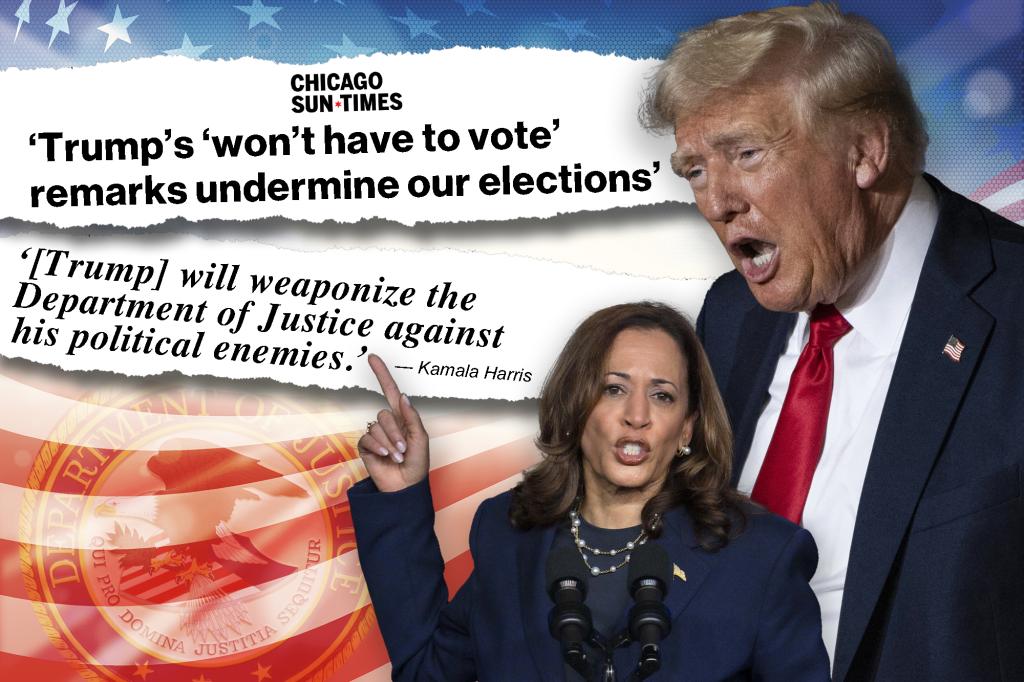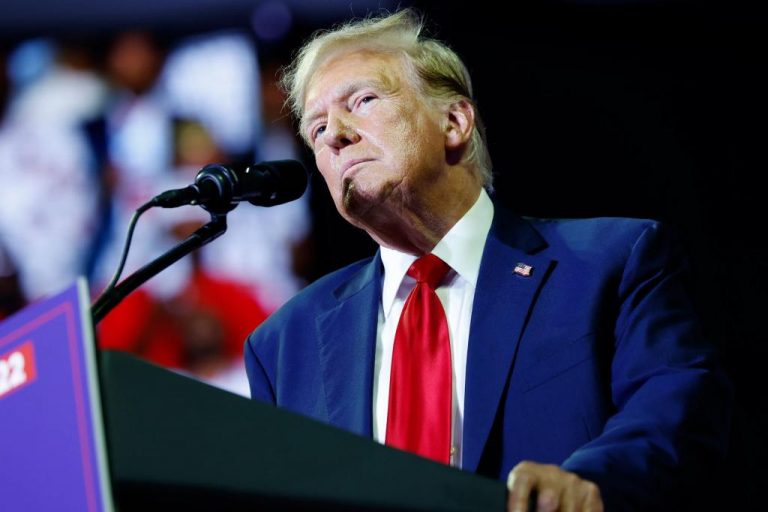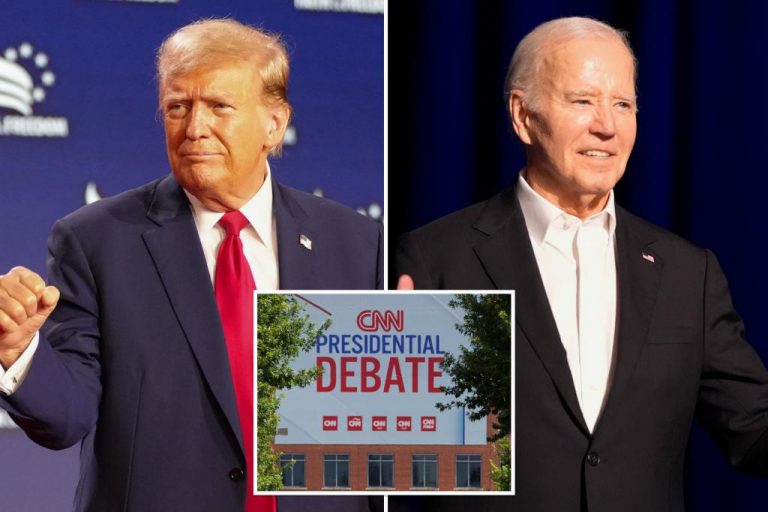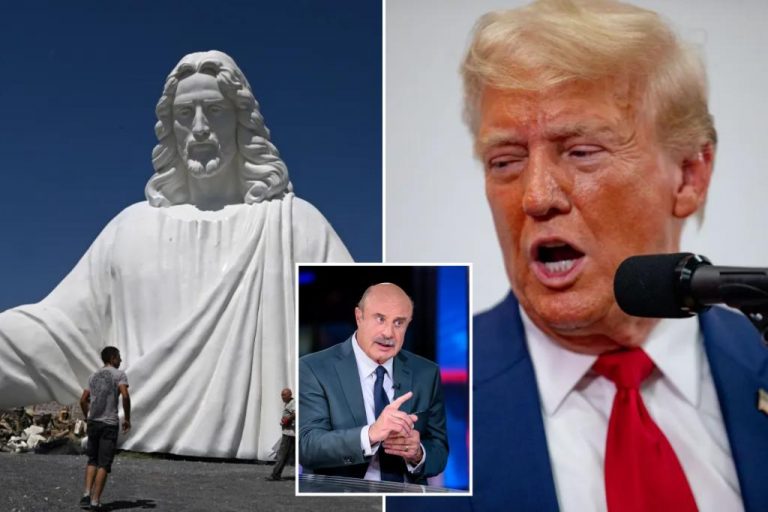False election claims about Trump and Kamala’s FBI accusations
The Week in Whoppers: More Election Lies About Trump, Kamala’s Deranged FBI Nonsense, and More
Welcome to another edition of The Week in Whoppers, where we take a look at the most outrageous and misleading claims made in the news. This week, we have seen a flurry of election-related lies about former President Donald Trump, Vice President Kamala Harris’s bizarre FBI comments, and much more.
Let’s dive into the top whoppers of the week:
1. Trump Still Claiming Election Was ‘Stolen’
Despite numerous audits, court rulings, and investigations confirming no widespread voter fraud in the 2020 presidential election, former President Trump continues to falsely claim that the election was “stolen” from him. In a recent interview, Trump reiterated his baseless assertions, further perpetuating the dangerous myth of a rigged election. Experts and officials from both parties have debunked these claims, but Trump persists in spreading misinformation.
2. Kamala Harris’ Unsubstantiated FBI Conspiracy Theory
Vice President Kamala Harris made waves this week with her bizarre and baseless claim that the FBI was involved in voter intimidation during the 2020 election. Harris provided no evidence for her assertion, which was quickly debunked by the FBI itself. The Vice President’s unfounded conspiracy theory only serves to erode trust in our democratic institutions and spread unnecessary fear and division.
3. Social Media Misinformation Rampant
Misinformation continues to run rampant on social media platforms, with falsehoods about COVID-19, vaccines, and the 2020 election spreading like wildfire. Despite efforts by Facebook, Twitter, and other tech companies to crack down on misleading content, disinformation remains a significant challenge. Users are urged to fact-check information before sharing it and to be wary of sources with dubious credibility.
4. Climate Change Denial on the Rise
In the face of overwhelming scientific consensus, climate change denial is on the rise, fueled by misleading claims and pseudo-science. Politicians, special interest groups, and media outlets continue to sow doubt about the reality of climate change and its human-caused origins. As extreme weather events become more frequent and severe, it is essential to confront this misinformation and take urgent action to address the climate crisis.
5. Conspiracy Theories Abound
From QAnon to 5G paranoia, conspiracy theories are proliferating across the internet, drawing in unsuspecting followers with outlandish claims and wild speculation. The spread of misinformation and disinformation poses a threat to public health, national security, and civil discourse. It is crucial to approach information critically and skeptically, seeking out reliable sources and evidence-based facts.
6. Fact-Checking in the Age of Misinformation
Fact-checkers play a vital role in combating the spread of falsehoods and distortions, holding public figures and media outlets accountable for their statements. With the proliferation of misinformation online, fact-checking has never been more critical. By verifying claims, debunking myths, and providing context, fact-checkers help to promote truth and accuracy in public discourse.
7. The Importance of Media Literacy
Media literacy education is essential in the digital age, equipping individuals with the skills to discern credible information from misinformation. By teaching critical thinking, source evaluation, and information literacy, media literacy empowers citizens to navigate the complex landscape of news and media. In an era of echo chambers and filter bubbles, media literacy is a crucial defense against deception and manipulation.
8. Holding Misinformation Spreaders Accountable
Those who intentionally spread misinformation must be held accountable for their actions, as they contribute to the erosion of trust, the spread of discord, and the undermining of democracy. Platforms, regulators, and the public all have a role to play in combatting misinformation and disinformation, enforcing standards of accuracy and integrity in public discourse.
9. The Role of Critical Thinking
Critical thinking skills are more important than ever in navigating an information landscape rife with falsehoods and distortions. By questioning assumptions, analyzing evidence, and considering alternative perspectives, individuals can guard against the pitfalls of misinformation and make informed decisions. Critical thinking is a foundational skill for responsible citizenship and democratic participation.
10. Promoting a Culture of Truth
To combat the spread of misinformation, we must foster a culture that values truth, evidence, and reasoned debate. By promoting transparency, accountability, and intellectual honesty, we can create a more informed and engaged society. In an era of deep fakes, fake news, and viral falsehoods, upholding the principles of truth and integrity is more important than ever.
Conclusion
As we navigate a world rife with misinformation, conspiracy theories, and falsehoods, it is essential to remain vigilant, informed, and discerning. By questioning claims, seeking out reliable sources, and upholding the principles of truth and accuracy, we can combat the spread of misinformation and defend democracy. In an age of uncertainty and division, let us stand together in pursuit of truth, justice, and integrity.








